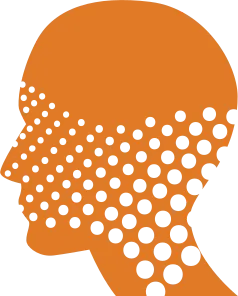Nasal Congestion and Septal Deviation
Can nasal polyps cause nasal congestion?
Nasal polyps are growths that occur in the nasal cavity around the inferior turbinates. Made of a semi-translucent cellular mass, nasal polyps affect around 2-5% of Americans. If left unchecked, these noncancerous growths may obstruct the nasal passages and sinuses.
Patients with polyps differ from patients with rhinosinusitis in that they do not have the same headaches and facial pressure and pain the latter suffer from. This is unless they have an infection in addition to the polyps. While polyps may exist on their own, in some instances they may be associated with conditions such as chronic rhinosinusitis, Kartagener syndrome, cystic fibrosis, Samter triad, etc.
Although not proven, evidence does suggest a correlation between allergies and the growth of nasal polyps. When diagnosed with nasal polyps, a nasal polypectomy procedure may be required if other therapies are not successful.
How are nasal polyps removed?
A traditional polypectomy involves the surgical removal of nasal polyps to relieve congestion in the nasal cavity. Polyps in some instances may spread to the sinus cavities. The polypectomy procedure is an effective and low impact procedure to remove polyps and typically takes less than an hour and may be performed as an outpatient procedure.
Methods Used
To remove the polyps, the surgeon will undertake the nasal polyp removal procedure as follows:
- The patient is induced with general anesthesia
- The nose is then topically decongested with a decongestant such as oxymetazoline
- Local anesthesia is then applied to the area around the polyps and the polyps themselves
- The surgeon will then insert the visualization endoscopic device and prepare for the polypectomy
- Using forceps, cutting instruments or a microdebrider, the surgeon will cut out the polypoid tissue
- After all the polyps have been removed, the surgeon will take care of any bleeding that may occur (this is typically minimal) and then wind up the procedure.
Are there any side-effects?
Side effects and complications may include:
- Negative impacting of surrounding structures during the procedure
- Excessive bleeding if a blood vessel in the surrounding areas is punctured
- Recurrence of polyps over time owing to underlying factors giving rise to polypoid tissue
- Infection of nasal cavity
- Allergic reaction to anesthesia or decongestant medication.
Follow-up treatments or next steps:
Careful management of the nasal cavity post-operation is required to prevent any incidences of infection. It may also be prudent to get further testing to discover and address any underlying factors that may be causing the growth of the polyps (e.g. cystic fibrosis).
What else can cause symptoms of congestion?
Different types of allergens
Pollen which is seasonal, along with molds, dust mites and pet dander can cause swollen, congested and inflamed nasal and sinus passages. Sometimes a SET allergy test is needed.
Deviated septum
Nasal congestion may also be caused by a deviated septum. Although sometimes medication may offer some relief, a septoplasty may be required to repair the crooked septum and improve breathing.
Enlarged turbinates
Chronic nasal obstruction are sometimes caused by turbinate enlargement. Turbinates gradually thicken, narrowing the nasal airway as we grow older. However, allergies and infections can also contribute to this condition. Factors such as weather, stress and even hormonal changes can cause chronic irritation or inflammation which in turn enlarge the turbinates.
Contact our office:
To find out more about our Traditional Polypectomy or any of the other treatments for nasal congestion and obstruction, visit L.A. Sinus & Allergy Specialists offices located at 1701 E Cesar Chavez Ave Suite 560, Los Angeles, CA 90033-2425, or book an appointment by calling (323) 226-0022 today.
